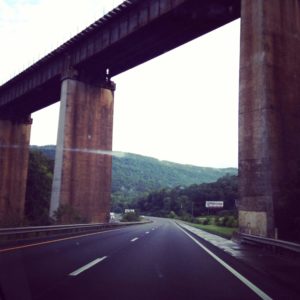Ramblin’ Women
What is it about staying that feels so intimidating? Put another way, what is it about leaving that feels so instinctive?
Compared to most people my age, I’ve shuffled around quite a bit. I grew up moving every year or two thanks to my dad’s job, but I’ve maintained that momentum as an adult. After college, grad school took me to specific locations, and then work became the reason behind relocating. But eventually I chafed at being committed to cities for no other reason than a job, and I set off to try different things: a couple of years in New Orleans, a few in Brooklyn, and now I find myself in Durham because it made sense. But who knows what comes next—if anything does. 
I know my life doesn’t always make sense to my friends. To them, all of that shifting around feels manic on some level. Compared to the stability of their choices, I must look a little lost.
But what if some of us are made to wander?
When I first heard Cat Power cover Hank Williams Sr.’s “Ramblin’ Man,” turning it into “Ramblin’ (Wo)man,” I felt as though someone had taken a spotlight to my life. Power turns Williams’ quaint country ditty about shirking commitment for the visceral thrill of locomotion into a heady, jazzy affair. “I love to see the towns go crawling by/ Something I got to do before I die,” she sings against a warbling organ. Although she didn’t write the song, just hearing a woman sing those words resonates in crucial ways.
Women haven’t written about moving or leaving quite as much as men because their boundaries have historically been much different. Forget about the fact that most women have been relegated (cough cough confined) to the domestic sphere since its creation, and consider the dangers that rambling traditionally poses. There’s no up and leaving because that way danger lies.
Maybe that’s part of my exhilaration in hearing women sing about rambling or moving on or just movement for the thrill of it. Miranda Lambert captures the latter on “Highway Vagabond,” a song off her 2016 album The Weight of These Wings. Lambert has always pushed back against the way women should act, embodying a messier persona akin to what more people would see if women could drop their polite, pleasant, personable facades and put their desires on full display.
From the song’s opening bass line, which drops into a steady, pacing drive, it details the sheer pleasure of movement. “There’s something about the way I feel when the wheels go round and round and round,” she sings, drawing out the final two “rounds” to underscore her point. She’s not pulling over anytime soon.
Part of movement, for me at least, involves the unlived lives that run alongside us. Virginia Woolf kerneled that very thought in To the Lighthouse: “And all the lives we ever lived and all the lives to be are full of trees and changing leaves.”
Literature has long been taken with the thought of other lives—what happens when a choice takes you down one path and away from another. Most people can shirk those shadows, but moving around—wandering, as I’ve come to call it—feels like a chance to try on a different life, if only for a while. Having lived in some of this country’s greatest cities, I get a taste that most tourists can only grasp at. (Though arguably I’m still a short-term traveler of sorts because I spent a few years there rather than a lifetime.)
What does it take to stay? I have yet to find that answer, but I’m willing to trade understanding for acceptance, embracing—rather than fighting—my penchant for movement. As Power sings on the chorus, “I love you, baby, but you got to understand when the Lord made me, he made a ramblin’ woman.”



